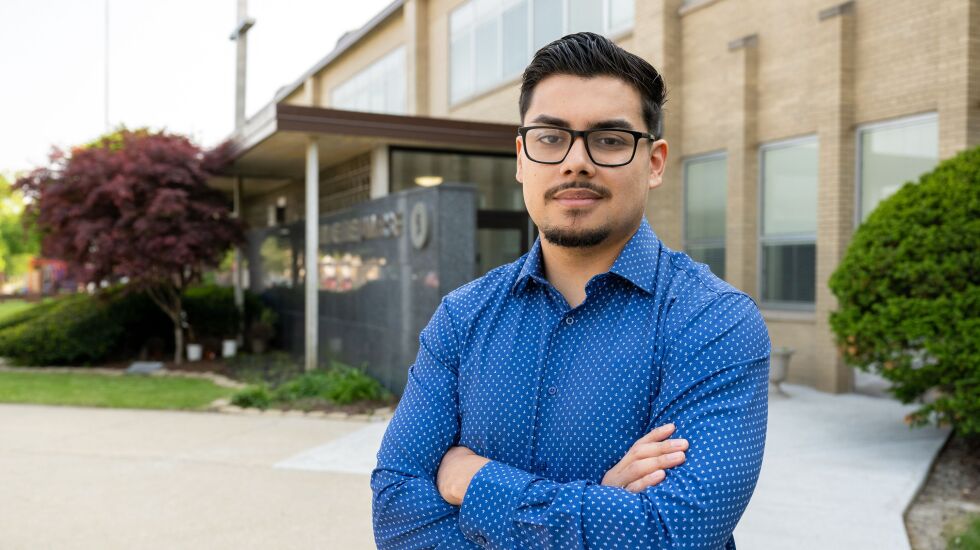
If Alfredo Palafox had health insurance, he imagines he could see the world more clearly.
Palafox, 28, doesn’t qualify for the state’s affordable health care program because he isn’t a U.S. citizen, and in the 10 years since he aged out of a program that included noncitizens, his health has suffered.
His eyesight has deteriorated to the point where surgery isn’t an option anymore, he hasn’t had a physical and the stress of his status has left him burned out but unable to afford mental health care.
“Carrots don’t help,” said Palafox, a native of Mexico who now lives in Evergreen Park.
Palafox says his life would be very different if he was covered, and he’s one of many hoping that will happen this spring as Illinois legislators vote on a slew of budget measures, including expanding access to the state’s program for noncitizens ages 19 to 41.
“Going through school was difficult because my parents would have to choose between my school payment and my own health,” Palafox said, recalling his time at Northeastern Illinois University. “That’s not something that should be a choice for parents.”
When Palafox became burned out from class and the jobs he held to help pay for school, he couldn’t access mental health care.
“Anyone who is undocumented who graduated, they went through these stages where they were just in their room and sad about what they were going through,” he said. “You don’t want to show your parents what you’re going through, so in the end you’re by yourself.”
Today, he works as an organizer for the Southwest Organizing Project, which he likes — but it doesn’t come with health care.
A trip to the optometrist, a routine checkup and a chat with a therapist are among the first things he imagines he would do if the state expands access. The move would impact an estimated 115,000 noncitizens in Illinois.
Many noncitizens hope the measure will pass, imagining how it could improve their lives, but health care providers also say it would help improve health outcomes.

“We only see the positive impact on our communities by providing health care to people ages 19 to 41, regardless of immigration status,” said Natalie Raghu, medical director of advanced practice providers at Erie Family Health Centers.
Illinois has provided public insurance to noncitizens for since 2020, when the state became the first to provide coverage for noncitizens age 65 and older. In 2022, the state expanded that access to noncitizens age 42 and older.
Those expansions have already had a big impact, Raghu said, resulting in fewer trips to the emergency room and earlier diagnoses for serious health issues because of more frequent routine checkups.
“When you catch these things early, the reduction in how complex treatment is is really important,” Raghu said, speaking at a rally in support of expanding access on Tuesday, “not just in medical care, but in remaining a contributor to society.”
Veronica Cisneros, an immigrant from Mexico who recently was able to access the state’s insurance because of last year’s expansion, hopes that’s the case if a lump that was detected in her breast turns out to be cancer.
Cisneros, 48, got a free cancer screening earlier in the year where the lump was detected. She panicked at first as she had been uninsured since losing a job at a cleaning company a few years ago.
“It scared me,” the Pilsen resident said. “All those years, I had security and nothing happened. In the moment where I didn’t have insurance, something happened.”
Luckily, the clinic that provided the screening helped her enroll for the state’s insurance. She’s awaiting the test results but feels more positive about the outcome — she just wishes the program had been around before.
In 2015, she lost a friend, who was pregnant and about the same age, to cancer and Cisneros wonders what difference it would have made for that friend and the baby had she been insured.
“When she died, this type of help didn’t exist,” she said. “She was a very dear friend.”
Michael Loria is a staff reporter at the Chicago Sun-Times via Report for America, a not-for-profit journalism program that aims to bolster the paper’s coverage of communities on the South Side and West Side.







